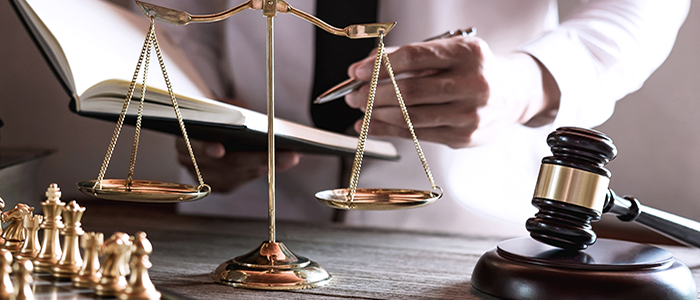Most people have a general idea of how criminal trials work, thanks in large part to the popularity of shows such as Law & Order and John Grisham books. What pop culture misses are the nuances of the trial system. Hopefully, you will never find yourself as a defendant in a criminal trial. If you are, it is important to have a basic understanding of the criminal trial system works in the State of Florida.
Two Types of Trials
In Florida, there are two types of criminal trials. The two types of trials are non-jury trial (bench trial) and jury trials.
Non-jury (Bench) Trial
As the name suggests, in a non-jury or bench trial, the trial proceeds without the presence of a jury. A bench trial occurs when the Judge, the Prosecutor, and the Defense all agree to it. Bench trials are typically for minor criminal violations and usually center around arguments of the law and not arguments of evidence or fact.
Jury Trial
A jury trial is the type of trial most people are familiar with and that we usually see in movies, television, and books. These are trials where a jury of the defendant’s peers are selected to serve to hear testimony, weigh evidence, and decide as to the innocence or guilt of the defendant. The judge’s role in this type of trial is to oversee the process and ensure that attorneys and witnesses present facts to the jury in an impartial manner.
Jury Selection
Before a jury trial can begin, a jury must be selected. Legal experts call jury selection “voir dire”. In voir dire, the attorneys bring a panel of citizens into the courtroom and ask them a series of questions. The prosecutor and defense then excuse people from the panel in a series of strikes. The remaining individuals are those selected to serve on the jury as either permanent or alternate jurors.
Conducting a Trial
Once the attorneys select the jury, the trial begins. Most jury trials follow a similar format:
Opening Statement
In an opening statement both the prosecution and defense address the jury for the first time. Both sides will outline their case and set the groundwork in convincing the jurors on the interpretation of the law and evidence that most benefits their case. Since the prosecution has the burden of proof, they go first followed by the defense. This also allows the defense to rebut the opening statements of the prosecution.
Presentation
After the attorneys conclude opening statements, both sides present their case through evidence and witness testimony. Once again, since the prosecution has the burden of proof, they will go first. When a particular side questions their witnesses, this is “direct examination”. The examination from the other side is call cross-examination. After each witness, the defense is given the option to cross-examine to try and discredit the testimony and to show doubt.
Objections
Throughout the testimonies of the witness, the opposite side (the side not examining the witness), may raise objections. The judge will then decide whether the objection is valid or not. If the objection is valid, the judge will sustain it. If the objection is not valid, the judge will over-rule it. In some instances, the judge may hold a bench conference with the attorneys over the objection and even ask the jurors to be dismissed while the judge decides over the conference so as not to bias the jury.
Closing Statement
After all evidence and testimony have been given, each side will be allowed to make closing arguments. In closing arguments, each side once again presents arguments for their side and points out inconsistencies or weaknesses on the other side. Due to the burden of proof, the prosecution will go first and last.
Deliberation
After closing, the jury will be given instructions by the judge on what laws and rules to consider. The jury will then be sent to another room where they will discuss amongst themselves the testimony and evidence and try to come to a consensus in rendering a verdict.
Does the Defendant Have a Role?
The defendant plays an active role in assisting their lawyers in developing a defense strategy. Only by being upfront and honest with legal counsel, can a proper strategy be implemented. If you have been arrested or accused of a criminal crime, contact our law firm for a consultation on your rights and further information on the trial system.


